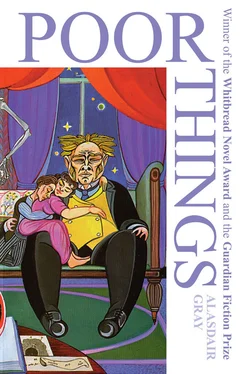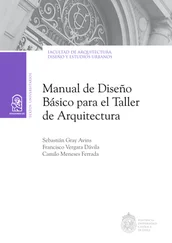“You are only good for one thing, Wedder,” she said thoughtfully, “but you are very good at it indeed, a true grandee monarch magnifico excellency emperor lord-high-paramount president principal provost bobby-dazzler and boss at it.”
Tears of gratitude rolled down my cheeks. I was so dependent and dilapidated that I still kept begging her hopelessly to marry me. My eyes were not even opened by the events in Gibraltar .
We left the ship and stayed there for a time while I arranged to sell my Scottish Widows and Orphans shares 14, a transaction which could not be hurried. I remember a bank manager saying in an insistent way which made my head ache, “Are you sure you know what you are doing, Mr. Wedderburn?” so I looked at Bella who said simply, “We need money Wedder, and we are not the only ones.” I signed a document. She led me out of the bank and through the Alameda Gardens toward the South Bastion, where we had lodgings. Suddenly Bella was confronted by a stout, stately, well-dressed woman who said, “How astonishing to see you Lady Blessington, when did you arrive? Why did you not call on us at once? Do you not remember me? Surely we were introduced four years ago, at Cowes, on board the Prince of Wales’ yacht?”
“How wonderful!” cried Bella. “But most folk call me Bell Baxter when I’m not with my Wedderburn.”
“But surely — surely you are the wife of General Blessington who I met at Cowes?”
“Oo I hope so! Though God says I was in South America four years ago. What is my husband like? Handsomer than droopy old Wedders here? Taller? Stronger? Richer?”
“There is obviously some mistake,” said the lady coldly, “though your appearance and voice are remarkably similar.”
She bowed and walked on.
“I saw that woman bowling along in an open carriage yesterday,” said Bella broodingly, “and someone said she was the wife of an old admiral who governs this great big Rock. She never answered one of my questions. Can I crash in on her and ask them again? Why should I not have a spare military husband somewhere, and more than the few names I already have, and go for sails on royal yachts?”
It was thus I learned that my Awful Mistress had no memories of her life before the shock which made that strangely regular crack which circles her skull under the hair — IF CRACK IT BE, Mr. Baxter! But YOU know, and I NOW KNOW what it REALLY is—
“Baxter,” I groaned, “has Wedderburn deduced everything?”
“Wedderburn has deduced nothing sensible, McCandless. His flimsy brain has never recovered from his breakdown in Venice. Listen.”
YOU know, and I NOW KNOW what it REALLY is — a witch mark. Yes! The female equivalent of the mark of Cain, branding its owner as a lemur, vampire, succubus and thing unclean.
“I will now skip six pages of superstitious drivel and resume on the second last page where he describes Bella bringing him to Paris by overnight train. They are again short of money so do not want to pay for a cab. They stroll through not-yet-crowded streets where the huge returning wagons of the night-soil collectors are the only vehicles. The sky is milky grey, the air fresh, sparrows audible. Bell gazes with eager pleasure at all she sees, though carrying their luggage in two heavy cases, one on each shoulder. Wedderburn carries nothing. He has recovered most of his physical strength but dare not admit it to Bella lest (I quote) she drain me once more of all manhood. Listen.”
The Rue Huchette is a very narrow street near the river. Here we found a small rather noisy hotel, considering the hour. The waiter of a nearby café was setting out chairs and tables on the cobbles, so I sat while Bella went to investigate.
She soon returned without the luggage and in high spirits. A room would be ready for us in an hour; also the manageress, though the widow of a Frenchman, had been born in London and spoke fluent Cockney. She had invited Bella to wait in her office, and as it was very small would I like to sit where I was? I could wait in a foyer if I preferred, but the foyers too were very small, many overnight customers were about to leave and might tumble over me. In a dolorous voice I said I would wait outside, hiding my delight at the first chance since our elopement to be without Bella in the open air. She smiled so brightly as she whisked back into the hotel that I nearly believed she was as glad to be rid of me.
From the waiter I ordered coffee, a croissant and a cognac. These gave me courage. At last I felt strong enough to open and read the letter I had received in Gibraltar along with the money order from the Clydesdale and North of Scotland Bank. I knew that letter, addressed to me in my mother’s hand, would be full of bitter and just reproaches: reproaches I could never have faced without brandy in my guts and NO BELLA beside me, for Bella would never have left me in peace to stew in the remorse and misery I so richly deserved. Almost luxuriously I tore open the envelope and winced over its contents.
The news was more terrible than I had feared. Mother was nearly destitute. She could only afford to keep two servants now, Auld Jessy and the cook. With these two I had first discovered the pleasures of love, but they were now long past their best. Auld Jessy had grown so doddery we had meant to send her to the poor-house after Christmas. Cook was now a dipsomaniac. These served mother without pay because nobody else would give them house-room. Less tragic but more poignant was the fact that my frail lovely mother, a lonely widow of forty-six years, could no longer order clothes from London and Edinburgh, but must shop for them herself, in Glasgow. Guilt and rage brought me panting to my feet — mainly rage against Bella, for what had she done with all my money? Without thinking I strode forward down a lane like a corridor, grinding my teeth at the memory of my sufferings in the grip of that gorgeous monster.
Was it the Hand of God that steered me over that busy bridge then stopped me short before the open door of the great Cathedral? I think it was. I had never entered a Roman Catholic edifice before. What trembling hope drew me into this one?
I saw receding aisles of mighty pillars like avenues of titanic stone trees upholding an overarching dimness; I heard a glorious blast of Honestly, McCandless, his style is so sickeningly derivative that I will summarize what follows. Duncan Doubleyou has never prayed to God before but decides he’ll have a go because others are doing it here. He drops a centime into a box through a slit in the lid; lights a candle; sticks it on a spike before an altar; kneels down with tight shut eyes and tells The First Mover of All Things that Duncan Doubleyou is evil wicked rotten and wrong mainly because of Bad Bell Baxter, so please send help. Suddenly the world feels brighter. Wedderburn, opening eyes, sees sunlight beaming in on him through stained-glass window behind altar; rays through a heart-shaped crimson pane are casting a bright pink shadow on the bosom of Duncan Doubleyou’s white silk fashionable waistcoat. A personal telegram to Duncan Doubleyou from The Prime Mover? DW’s first reaction is Protestant. He wants to go somewhere private and think it over, a small intimate place with a seat and a lock on the door where he can be safe from interruption. He sees a row of cubicles with ordinary folk going in and out, each door with an indicator saying if vacant or engaged. He bolts himself into a vacancy which of course proves to be a confessional box. If I tell you that the padre behind the grille spoke English, can you guess what happened then, McCandless?”
“Not exactly.”
Читать дальше












